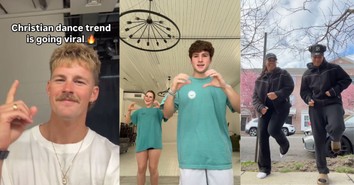New American Bible Society Study Proves Scripture-Engaged Adults Feel Less Alone

A new study by the American Bible Society found that Scripture-engaged adults experience lower levels of loneliness than those who are not engaged with the Word of God. The American Bible Society released the eight chapters of "State of the Bible USA 2024" on Thursday, with the main focus being "Loneliness." The data suggests that nearly three out of four Americans report moderate to high levels of loneliness, with more than one-third of Generation Z women ages 18-27 experiencing high levels of loneliness, according to The Christian Post.
"In our surveys, we've seen many ways that Americans benefit from Bible engagement, and we suspect that it might also help them feel less lonely. So we're testing a hypothesis," the report reads. "If the nation is indeed experiencing an 'epidemic of loneliness,' what happens when people form a meaningful relationship with the God they meet in Scripture?"
The respondents were split into three groups – "Scripture engaged," the "movable middle," and "Scripture disengaged" – and answered questions concerning the centrality of the Bible in their lives using the Scripture Engagement Scale. They also reported their levels of loneliness in light of the assessment.
Overall, the study found that respondents who were "Scripture engaged" reported lower levels of loneliness than those who were in the "movable middle" and "Bible disengaged" categories.
For instance, respondents who were "Scripture engaged" had Scripture Engagement scores of 100 or higher and reported high (11 percent) and moderate (50 percent) levels of loneliness.
Regarding the "movable middle," those who score between 70 and 99 on the Scripture Engagement Scale reported high levels of loneliness (59 percent) and experienced moderate loneliness (17 percent).
When it came to the "Bible disengaged," those who scored less than 70 on the Scripture Engagement Scale, 22 percent reported high levels of loneliness, while 52 percent experienced moderate loneliness.
The study also looked at levels of loneliness in relation to church attendance. Respondents who "never" attended church had the highest level of high loneliness (25 percent), followed by those who had not been to church in at least a month but had gone within the past year (20 percent), those who last went to church over a year ago (16 percent), respondents who last went to church within the past month (15 percent) and those who attend weekly (12 percent).
On the other hand, weekly church attendees scored the highest levels of low loneliness (33 percent), followed by respondents who last went to church within the past month (32 percent), those who last went to church more than a month ago but had gone in the past year (27 percent), respondents who had not attended church in at least a year (26 percent) and those who never go to church (24 percent).
Another finding in the study is that individuals who struggled with forgiveness reported higher levels of loneliness. For instance, 36 percent of respondents who identify as "strongly unable to forgive" experienced high loneliness, followed by 43 percent who reported moderate loneliness and 21 percent who reported low loneliness. Meanwhile, of those who consider themselves "somewhat unable to forgive," 22 percent reported high loneliness, 57 percent experienced moderate loneliness, and 21 percent felt low loneliness.
Among respondents who are "somewhat able" to forgive, 16 percent reported high loneliness, 56 percent experienced moderate loneliness, and 28 percent felt low loneliness. Those who considered themselves "strongly able to forgive" had the lowest share reporting high loneliness (16 percent) and the highest percentage experiencing low loneliness (35 percent), with the rest experiencing moderate loneliness.
"Some experts blame social media for fostering shallow connections that replace deep friendships. Our own research indicates that an inability to forgive could greatly increase levels of loneliness," American Bible Society's Chief Innovation Officer John Farquhar Plake said in a statement. "Regardless of the cause, the need is urgent. Churches should respond with care and creativity, offering a safe space to develop meaningful Christian relationships."
Photo Credit: ©unsplash

Originally published November 15, 2024.





